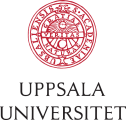Uppsala University
The Department of Peace and Conflict Research (DPCR) at Uppsala University (UU) was founded in 1971 and has established itself as a “world-leading research environment in conflict research” (KOF 2017). Peace and conflict research is a multi-disciplinary topic, and scholars at the department employ both qualitative and quantitate methods to address important questions relating to the causes and dynamics of peace and conflict. The department houses the Uppsala Conflict Data Program (UCDP), which is internationally renowned for collecting and providing high-quality data on organized violence. In addition to producing cutting-edge research, the department also offers educational programs at the bachelor, master and doctoral level. The PAVE project will be profiting from synergies with other ongoing projects such as “Resolving Jihadist Conflicts? Religion, Civil Wars and Prospects for Peace”, which has developed the most detailed and comprehensive dataset on religious dimensions of intrastate armed conflicts.
The UU team will lead WP3 on cumulative extremism. As part of this WP a quantitative mapping of the global patterns, situating Middle East and Balkans within the global context in terms of factors of vulnerability, will be carried out. The UU team will contribute to PAVE with their experience of large-N data collection, focusing on mapping the empirical trends and trajectories of religious dimensions of armed conflicts. The team will also, in collaboration with OTT in Iraq, implement a randomized field experiment in Iraq examining the effects of peacebuilding interventions on resilience against extremisms. In addition, UU seeks to contribute to the methodology of PAVE by drawing on their methodological expertise in cross-country quantitative analysis.

Department of Peace and Conflict Research
Gamla torget 3
SE-751 20, Uppsala
Sweden
Main Contacts

